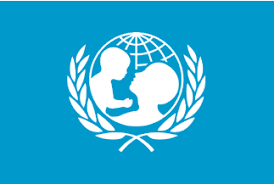As announced today, UNICEF has received nearly $7 million from Japan to promote equitable access to life-saving child protection, health, nutrition, and education services for returnees from northeast Syria. The project, which will be completed by the end of 2023, will benefit over 180,000 people, including 88,000 children and over 47,000 women.
This project of UNICEF, funded by Japan, will support efforts led by the Government of Iraq to accelerate the return process. The agreed-upon interventions will address the reintegration needs of both children and women in their home countries and returnees. Unaccompanied minors in detention, as well as young people detained and released from detention, will be assisted.
“This collaborative effort between UNICEF and Japan will enable returnee children and young people, particularly girls, to realise their rights, equipping them with critical skills and strengthening their ability to meaningfully contribute to society, promoting cohesion of communities affected by conflict and displacement. We can ensure that no one is left behind by protecting and empowering the most vulnerable children and young people, with a special focus on girls.”
Sheema SenGupta, UNICEF Representative in Iraq
The project will target children under the age of five as well as women, with a focus on both those who have returned to Iraq from northeast Syria and those who live in the areas of origin. It will provide access to health and nutrition services, as well as formal and non-formal education, including life-skills education and social cohesion programmes for children and adolescents.
“Japan and UNICEF share a vision of a smooth transition from humanitarian assistance to development and peace in Iraq, and this project aims to strengthen social cohesion and accept returnees. Japan is committed to collaborating with UNICEF to assist children, women, and youth returning from northeast Syria, as well as to addressing key challenges in their safe return and integration.”
said Kenichi Masamoto, Charge d’Affaires ad interim in the Embassy of Japan in Iraq
The funds will be used to provide services to returnees and other children in their communities, such as improved child protection services. Social cohesion and acceptance will be strengthened through the provision of inclusive services to a broader population, as well as assistance to returnees.
The proposed interventions will promote social cohesion, peace, and stability by combating stigma and discrimination. Furthermore, UNICEF will work with communities to prevent gender discrimination and promote equity by reaching out to the most vulnerable girls and young women who are excluded from various socioeconomic areas. Gender-related issues affecting both girls and boys will be identified and addressed to ensure that individual needs are met and addressed.
